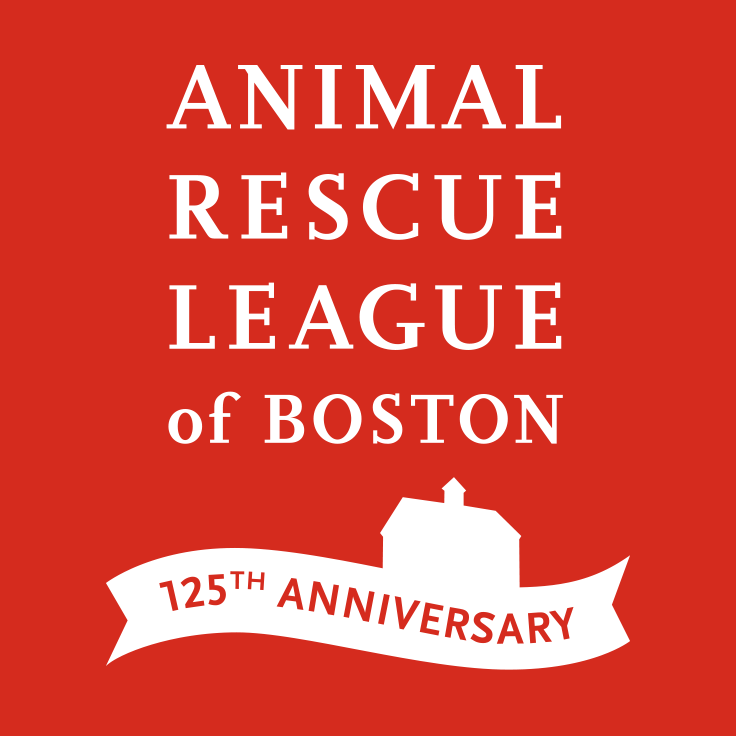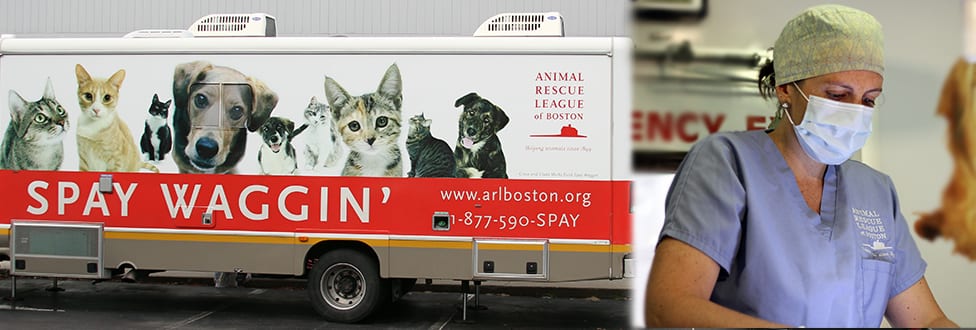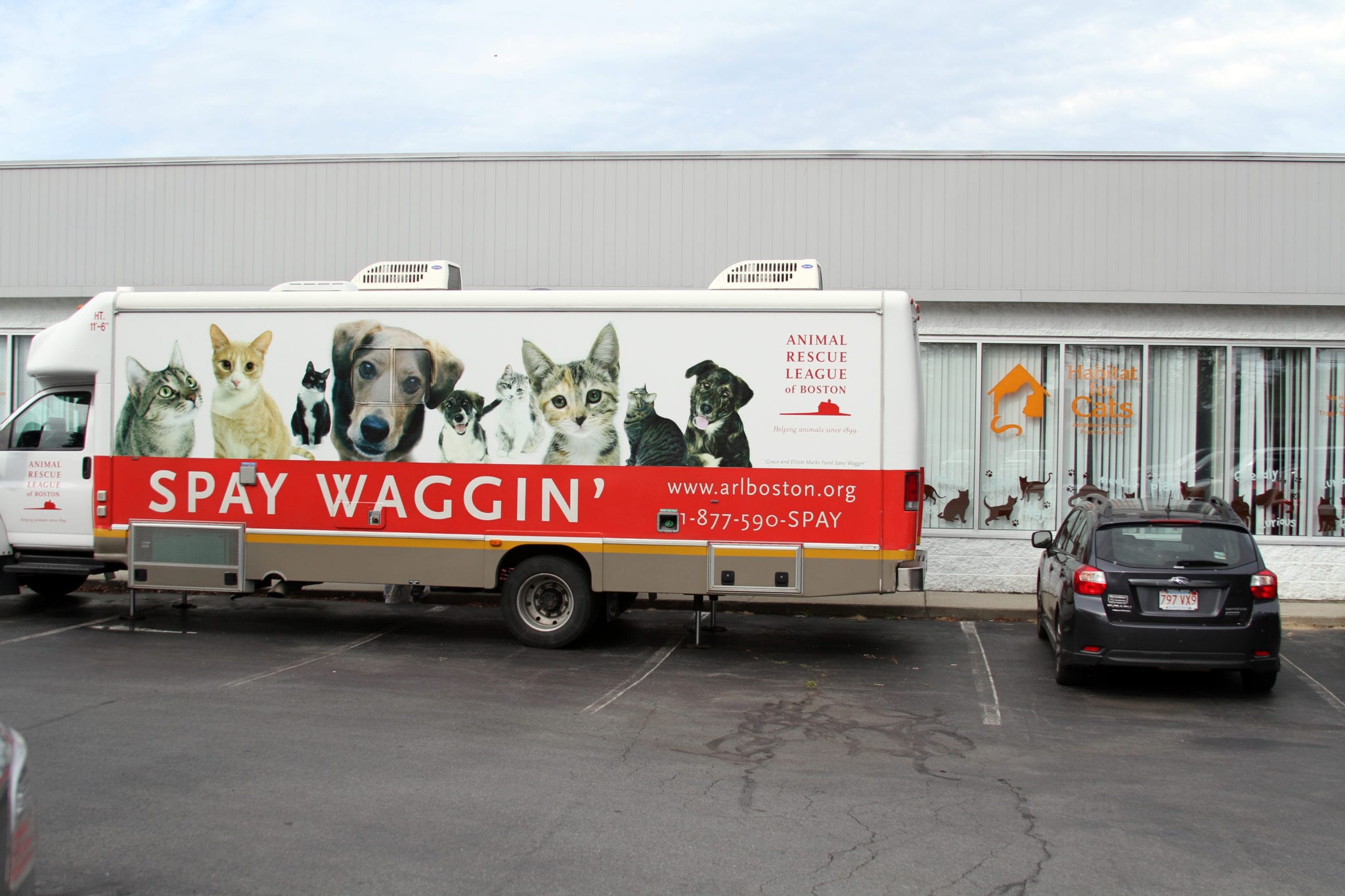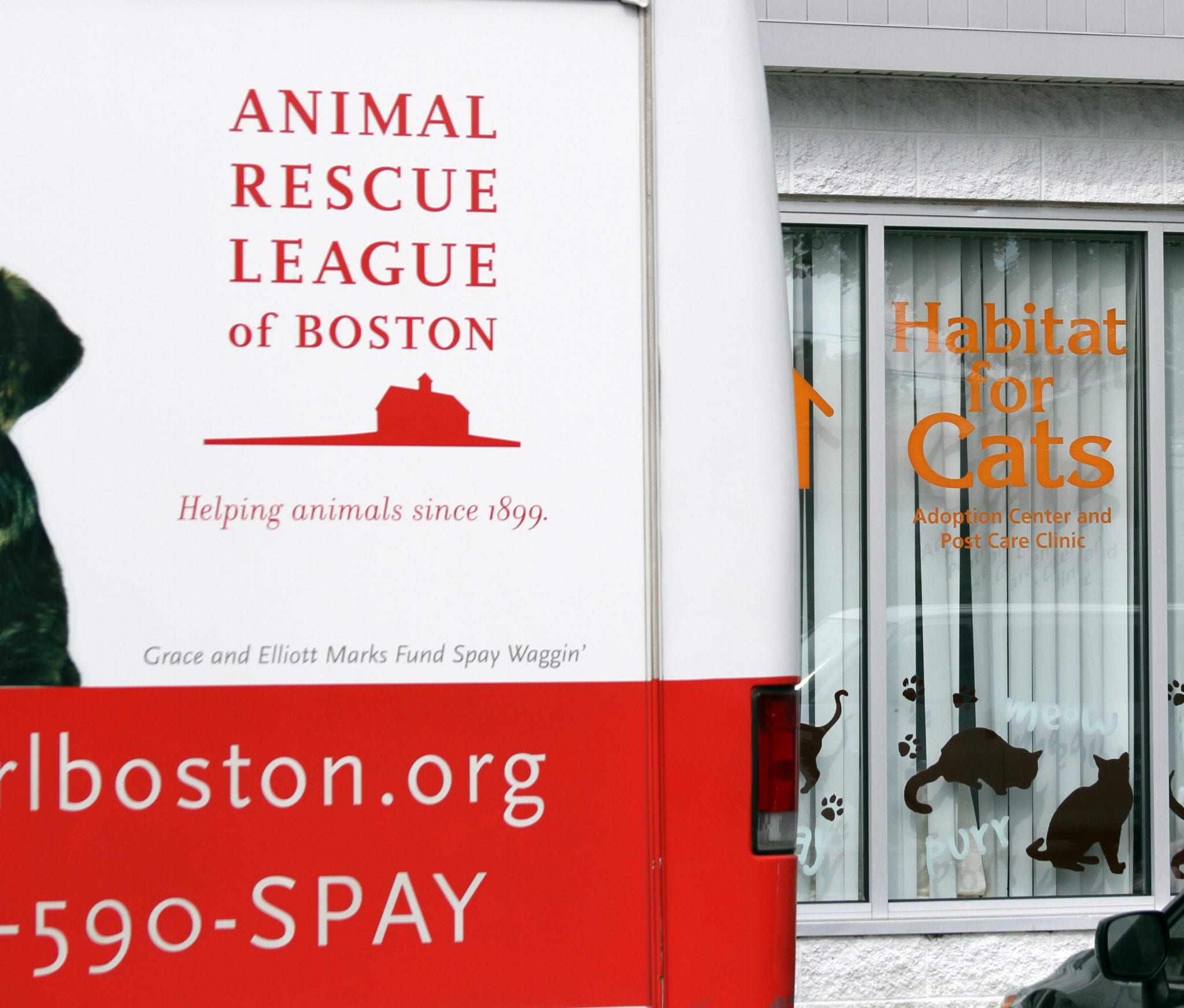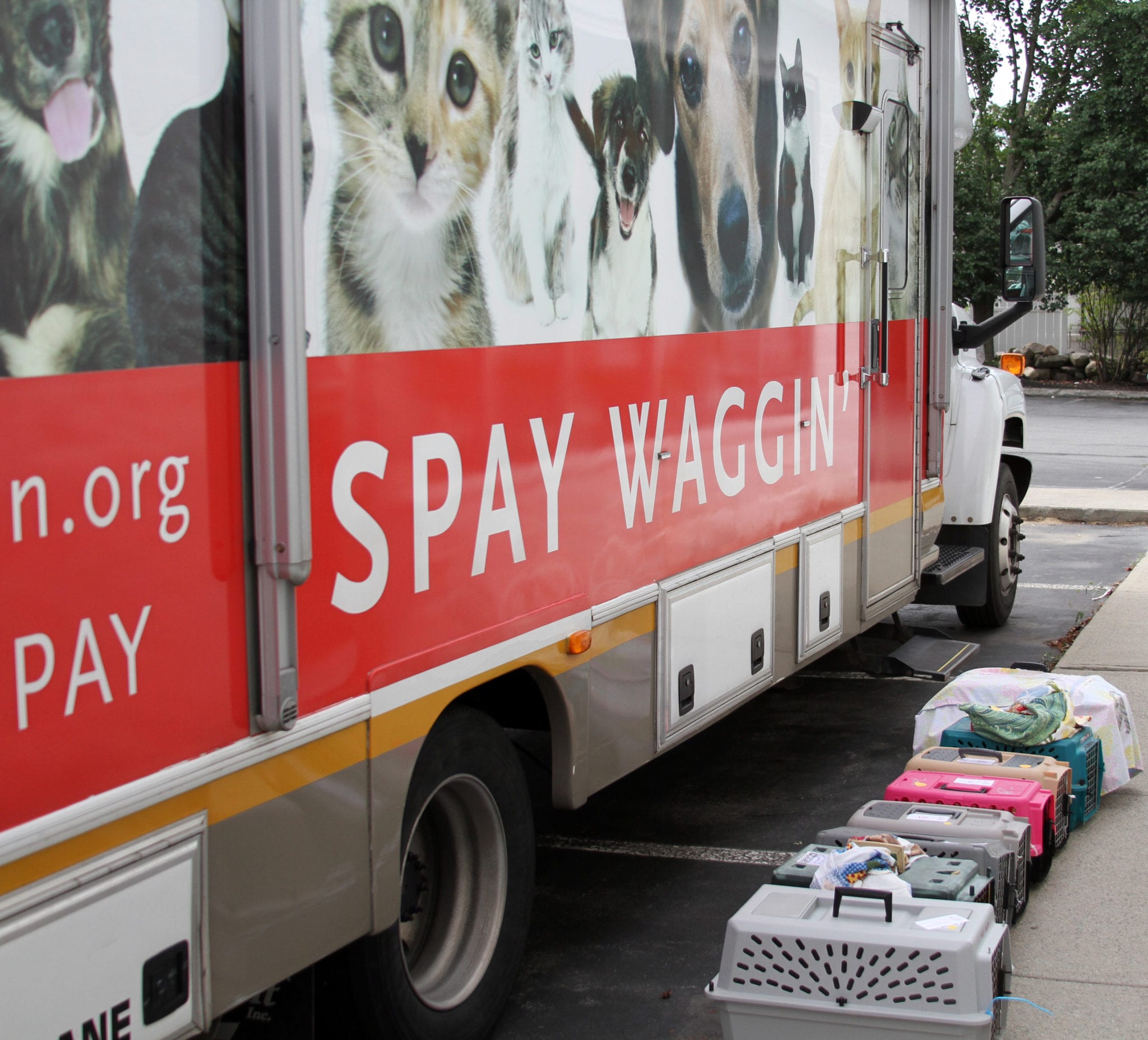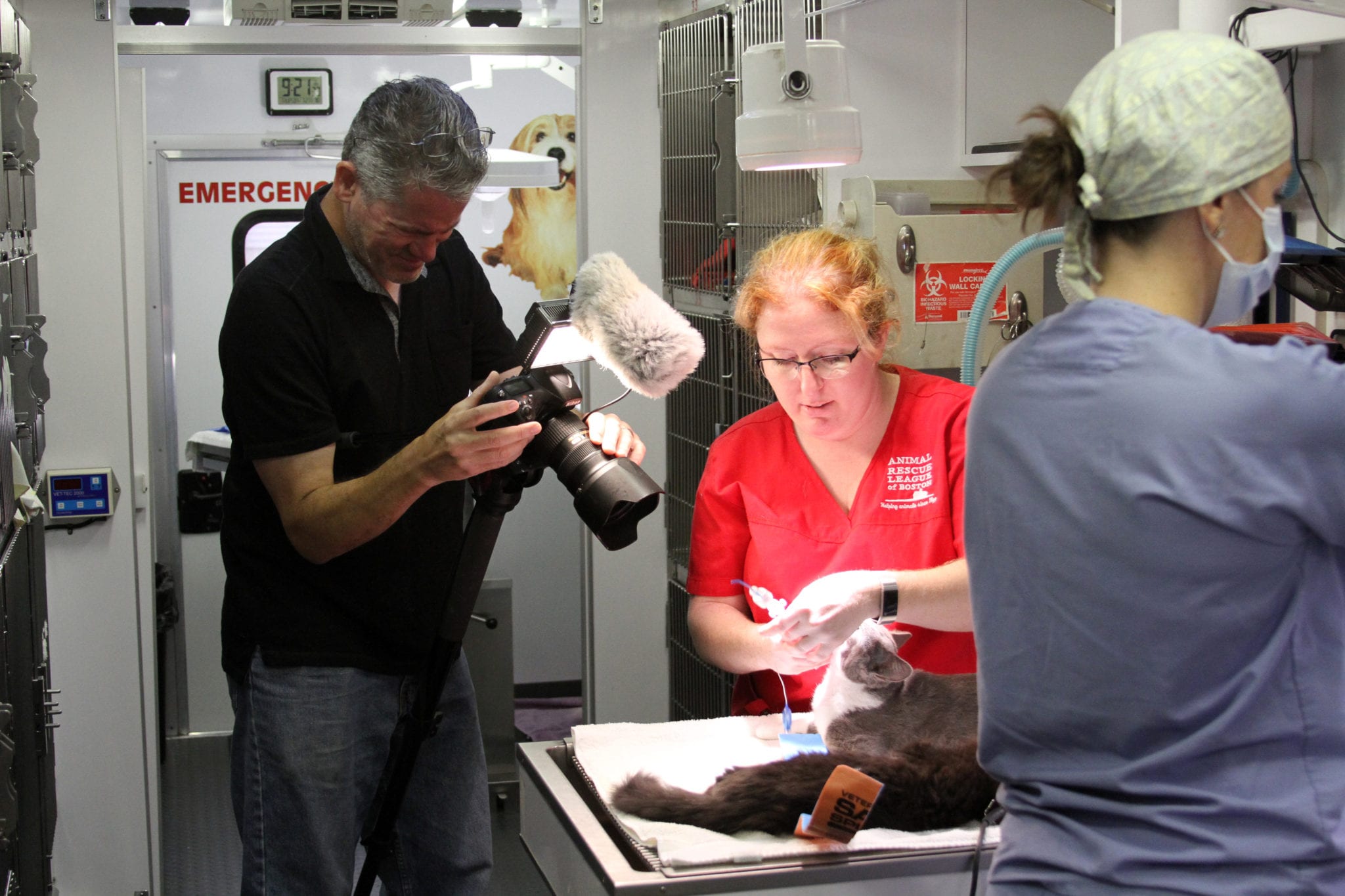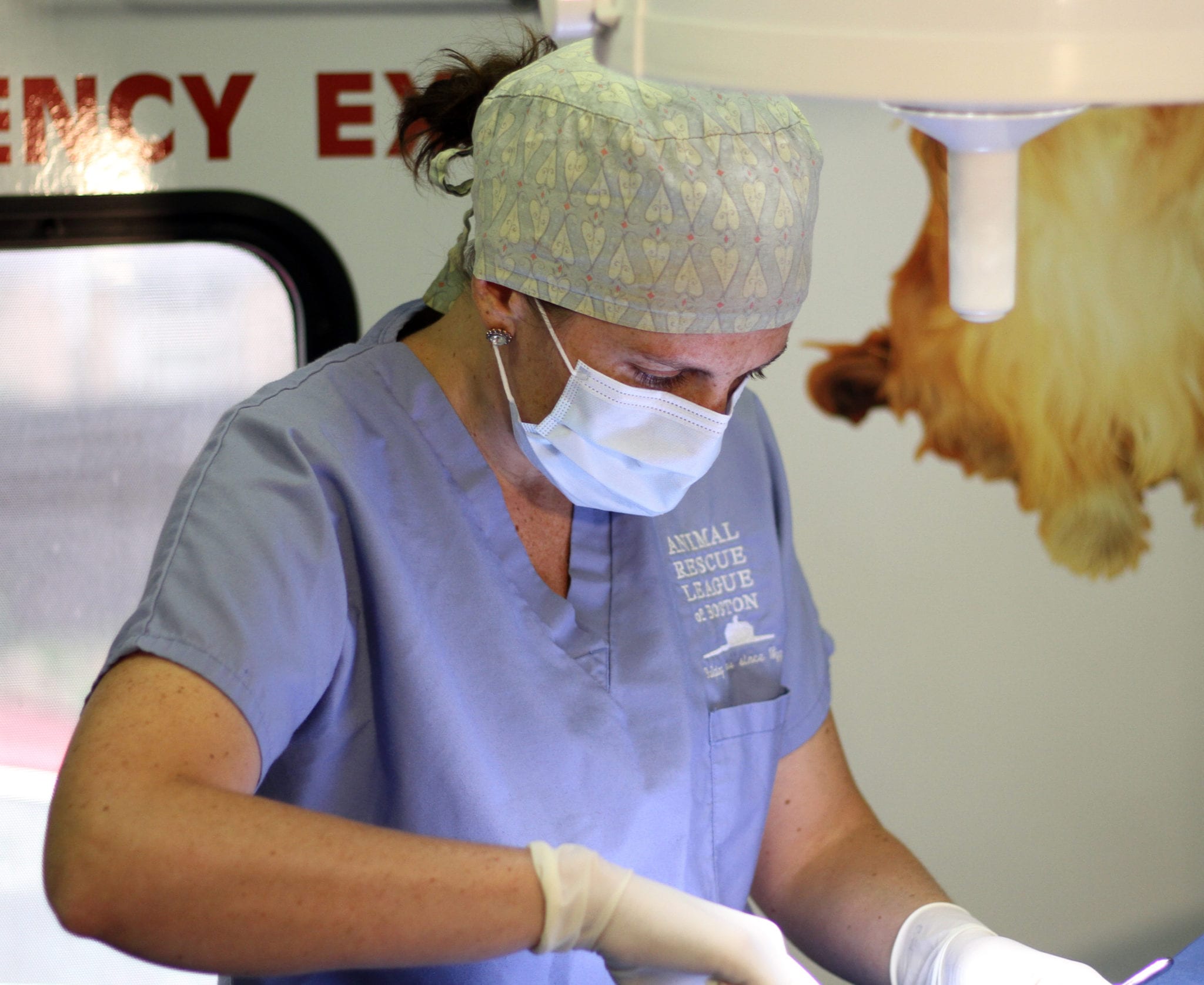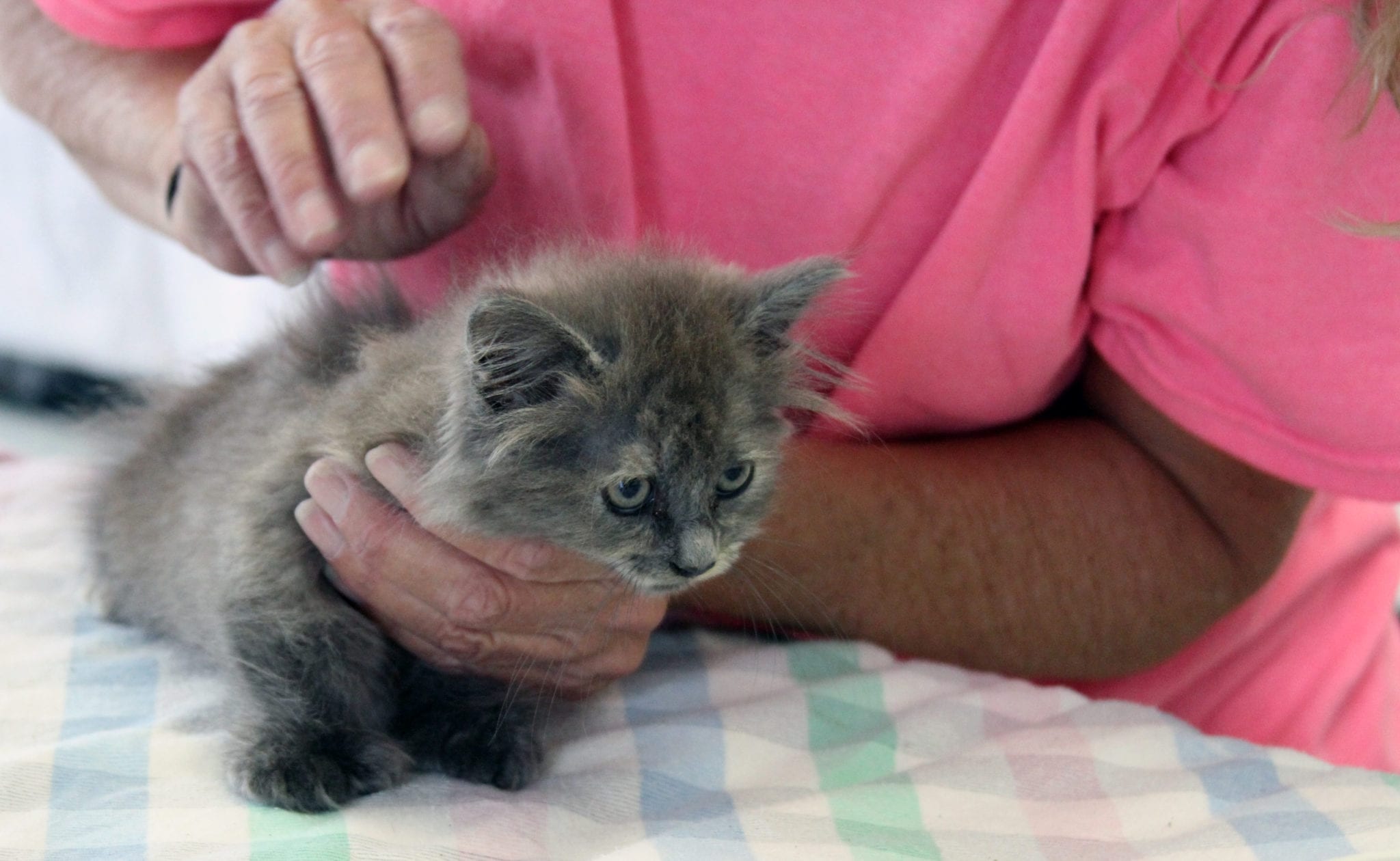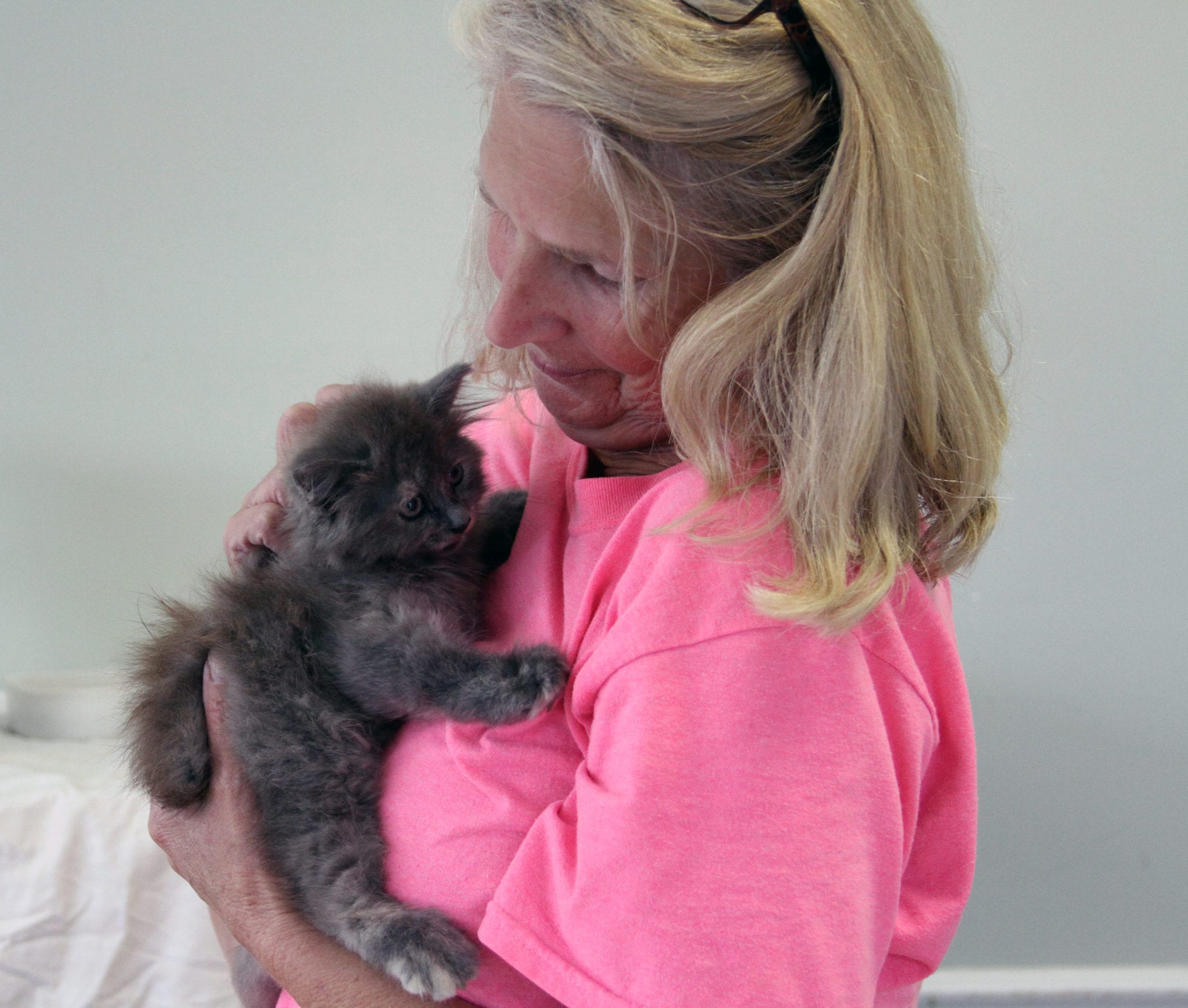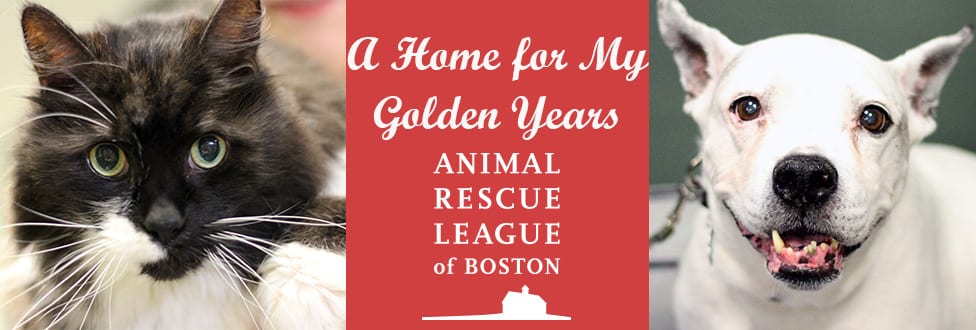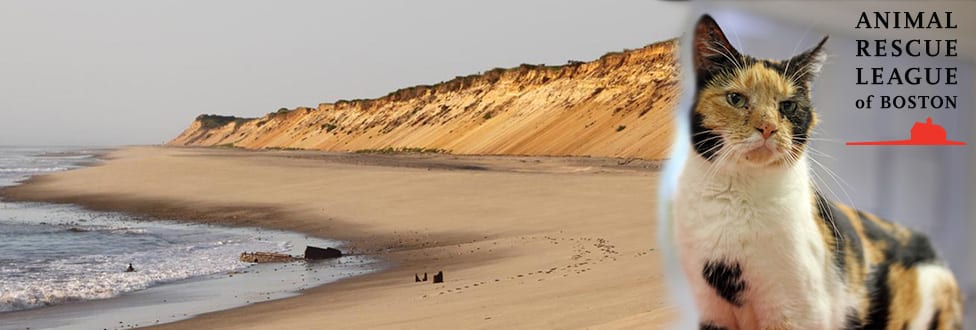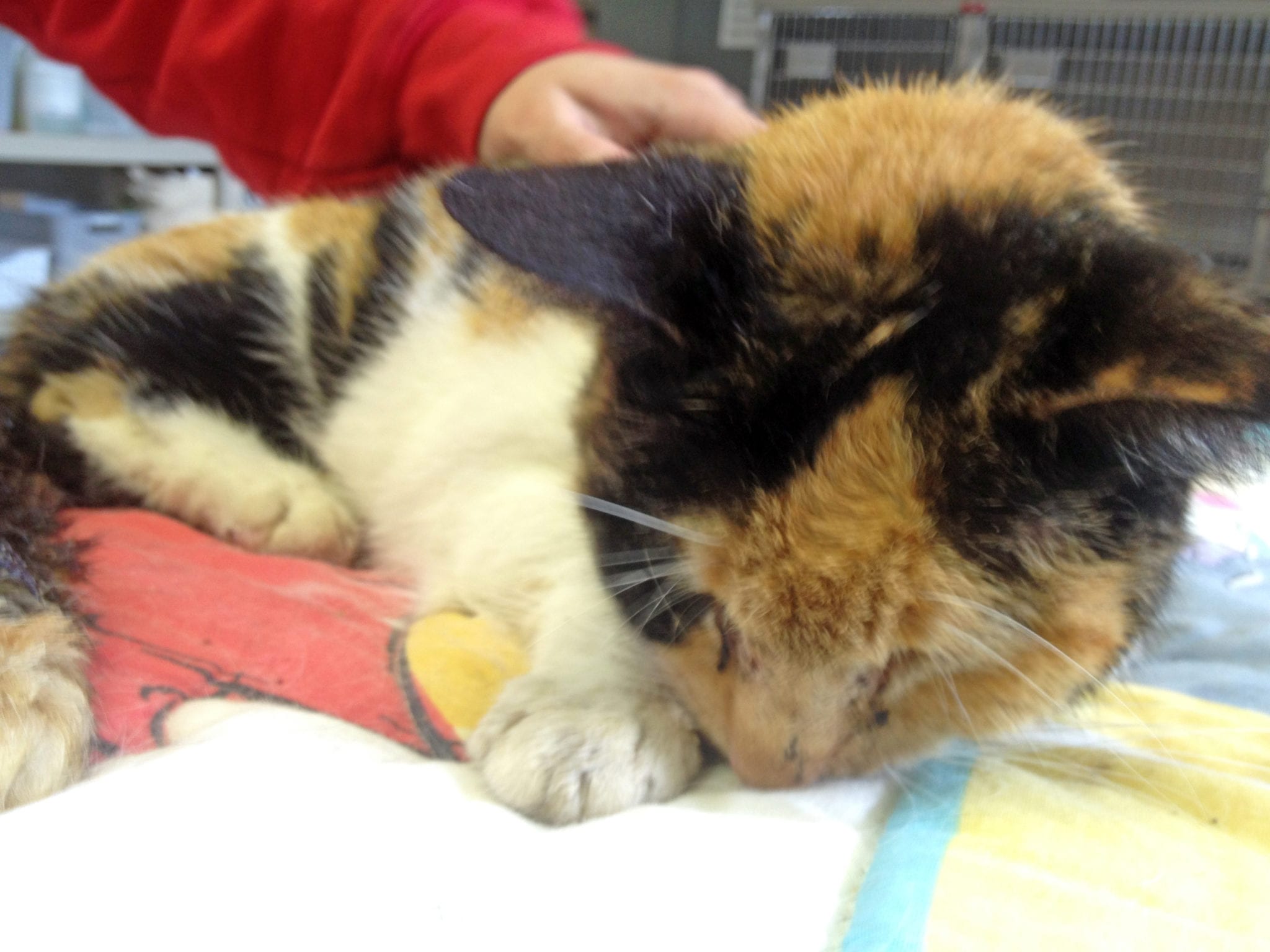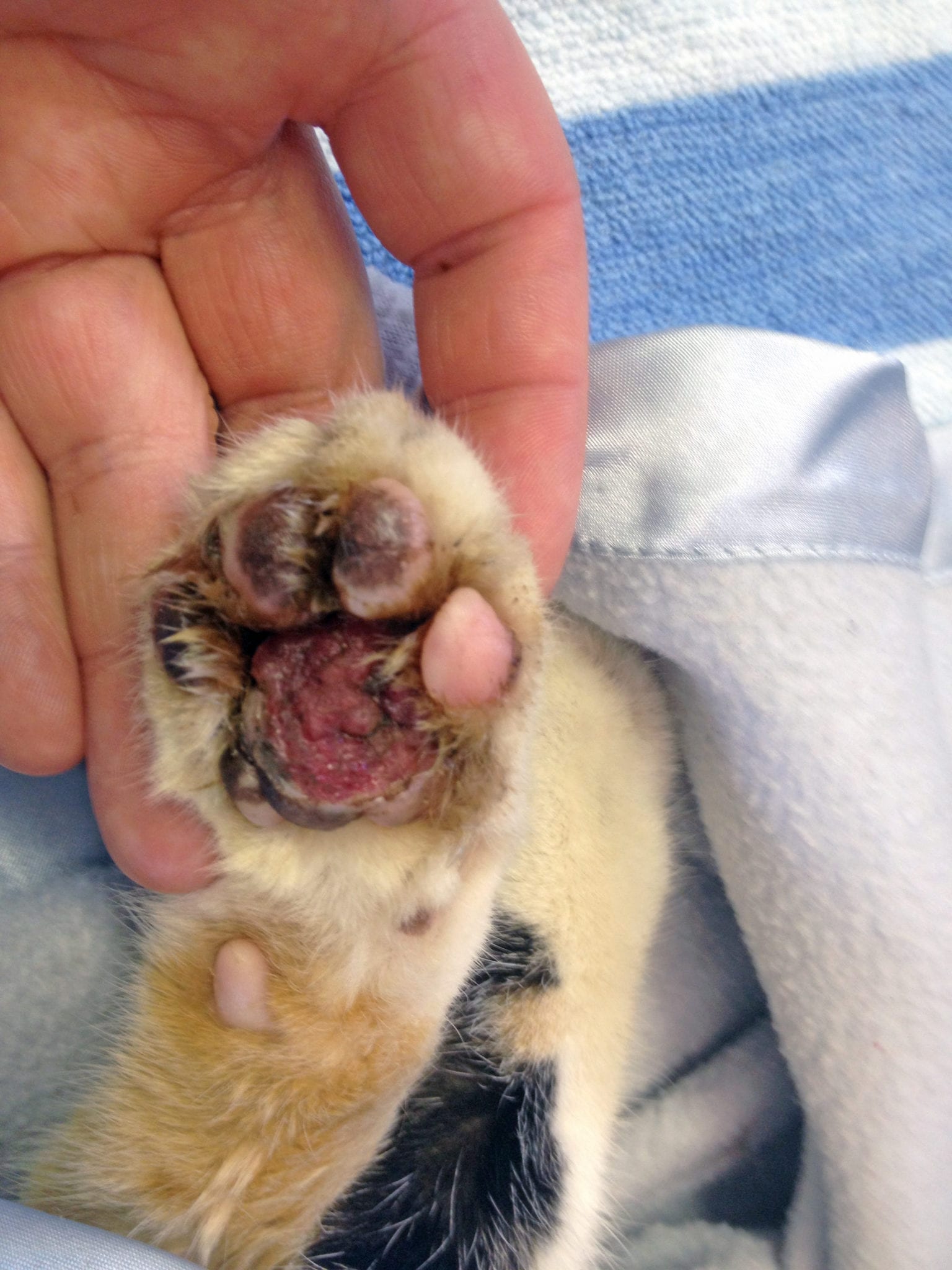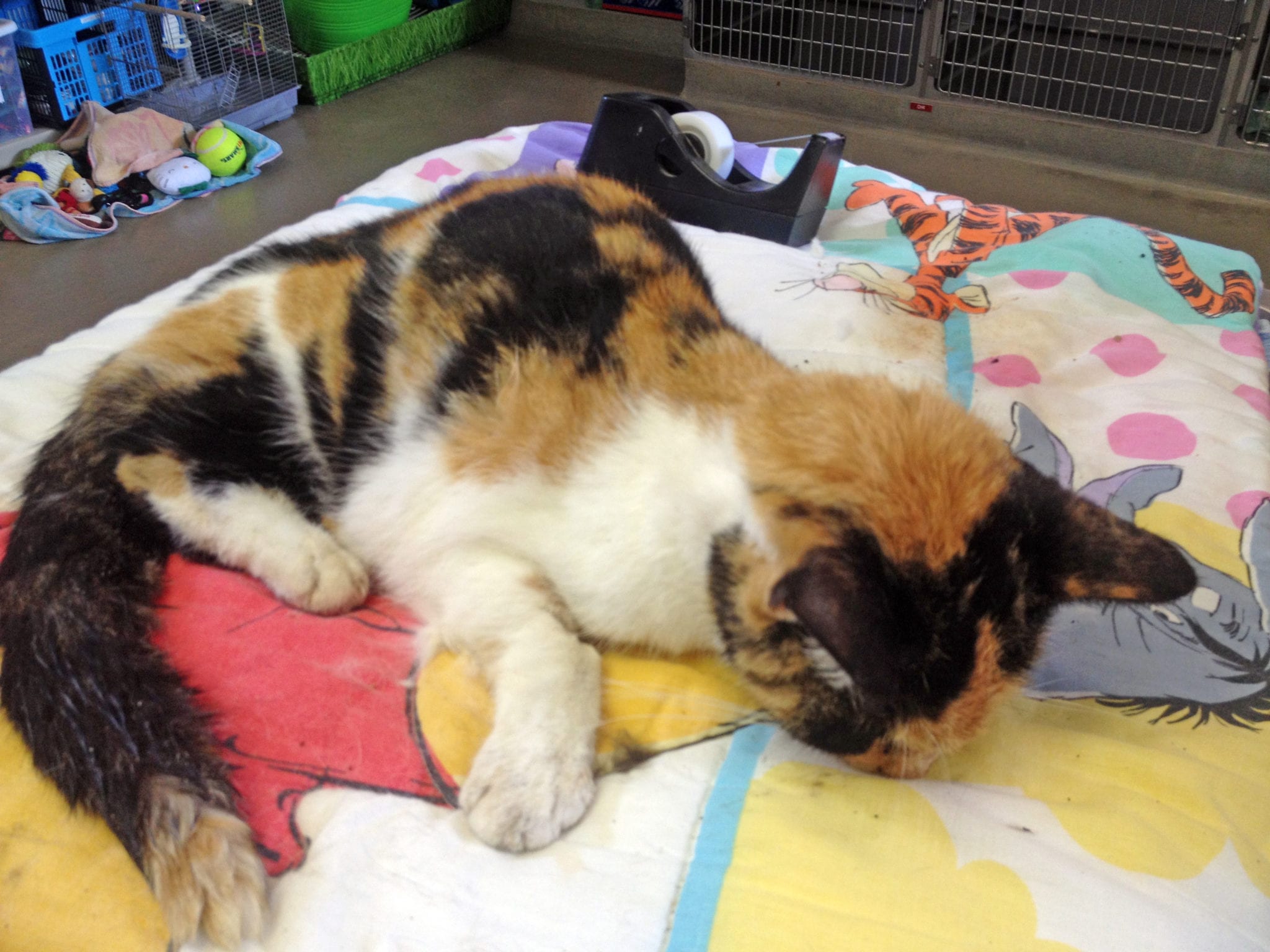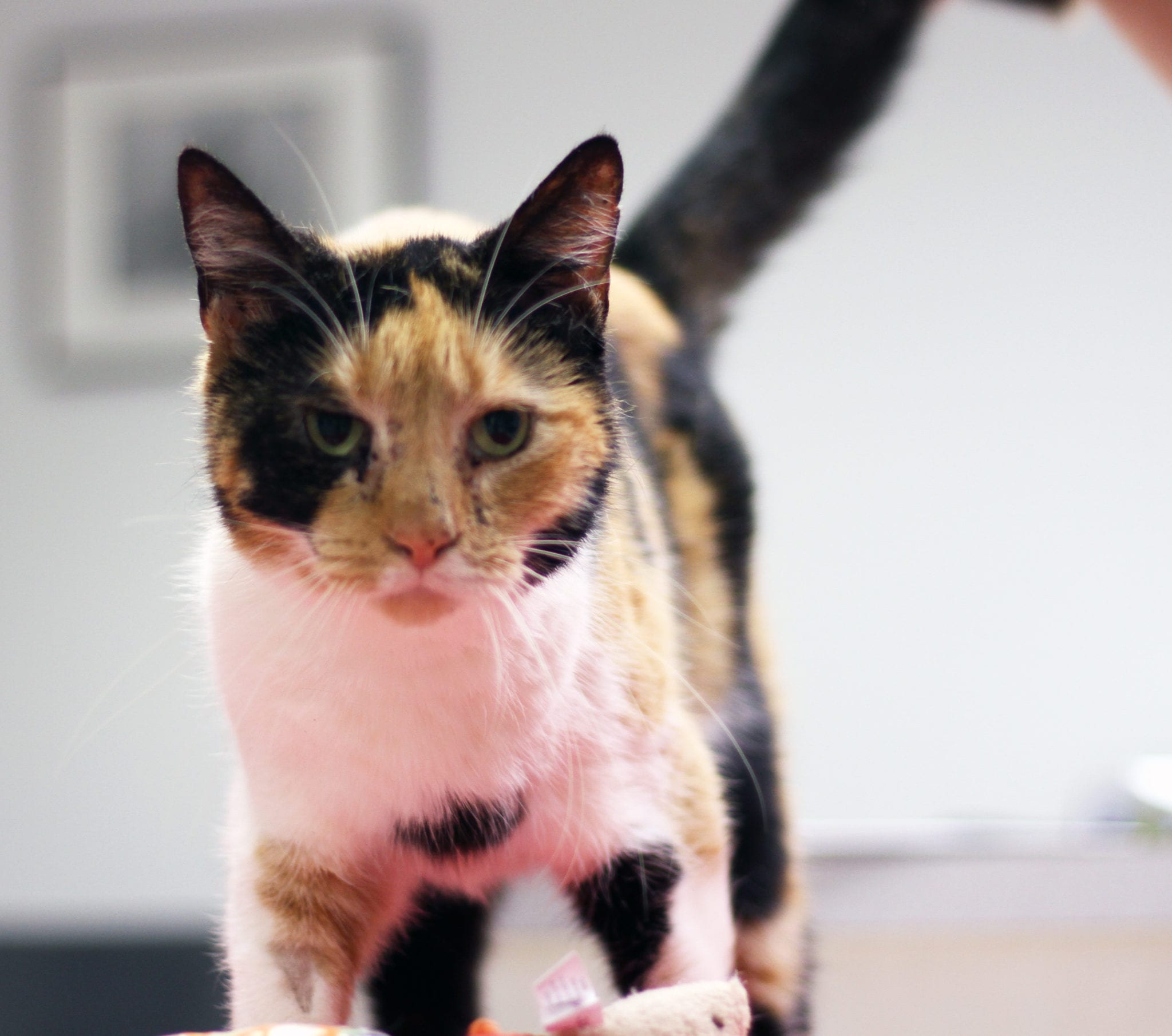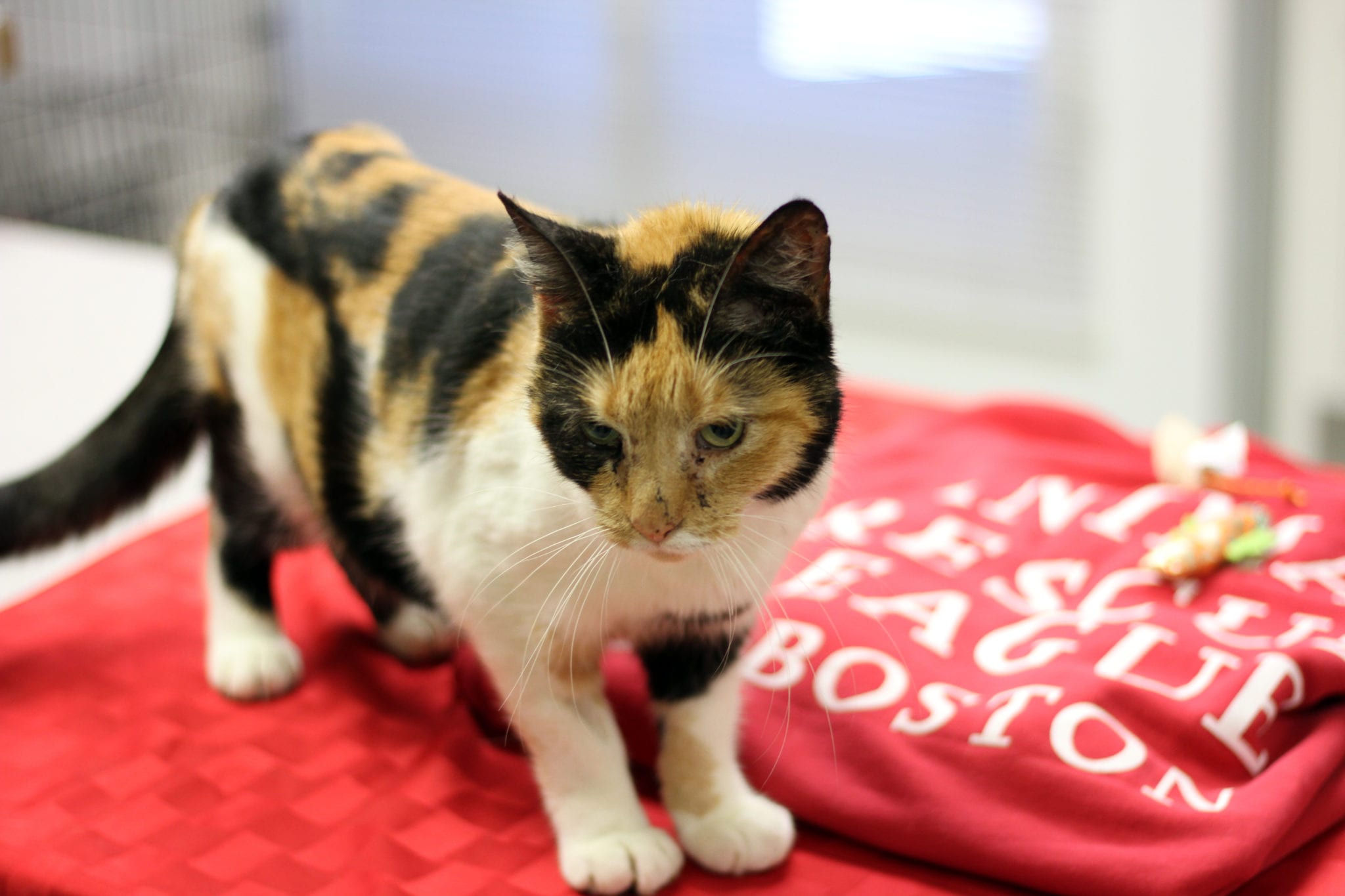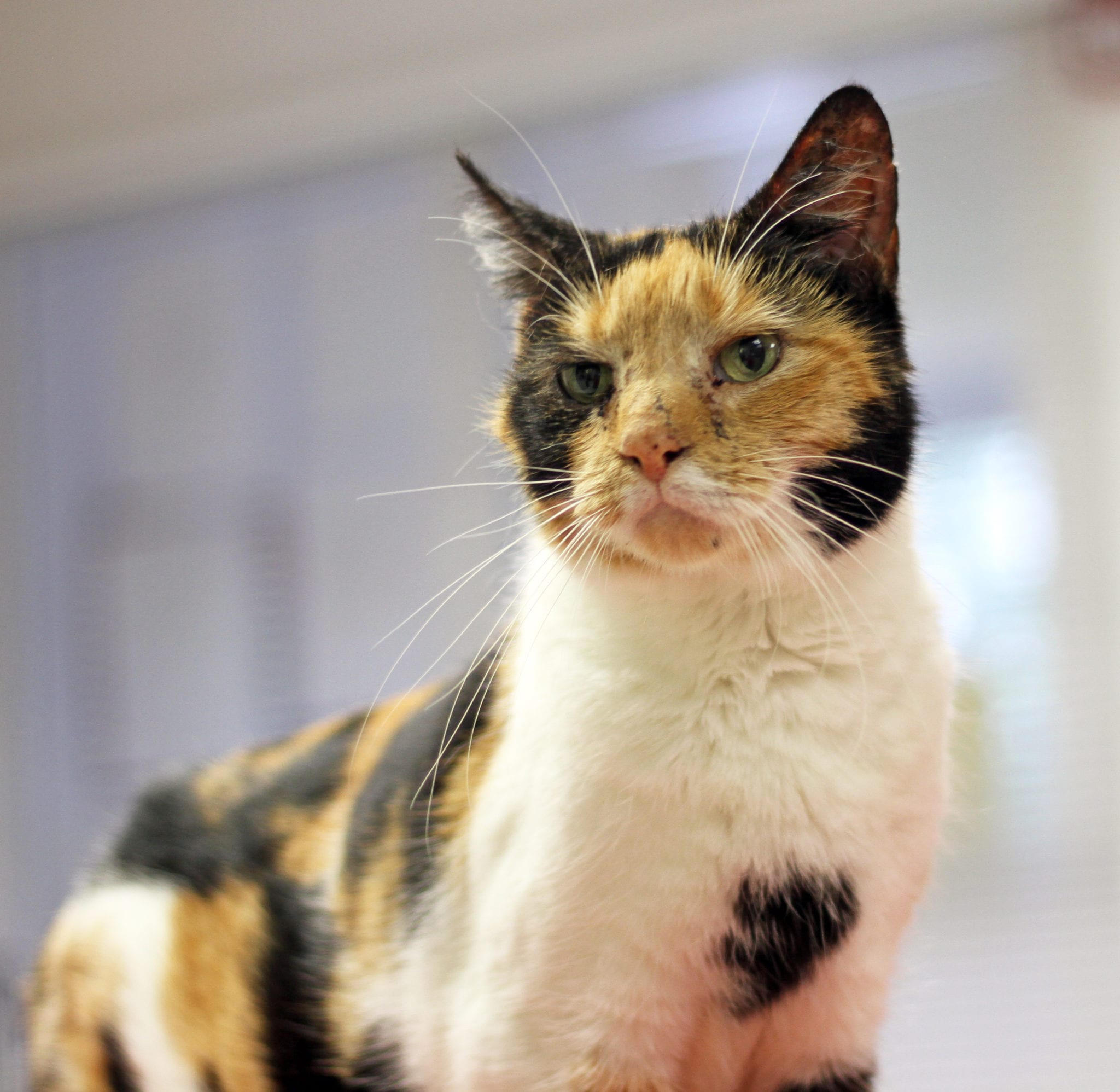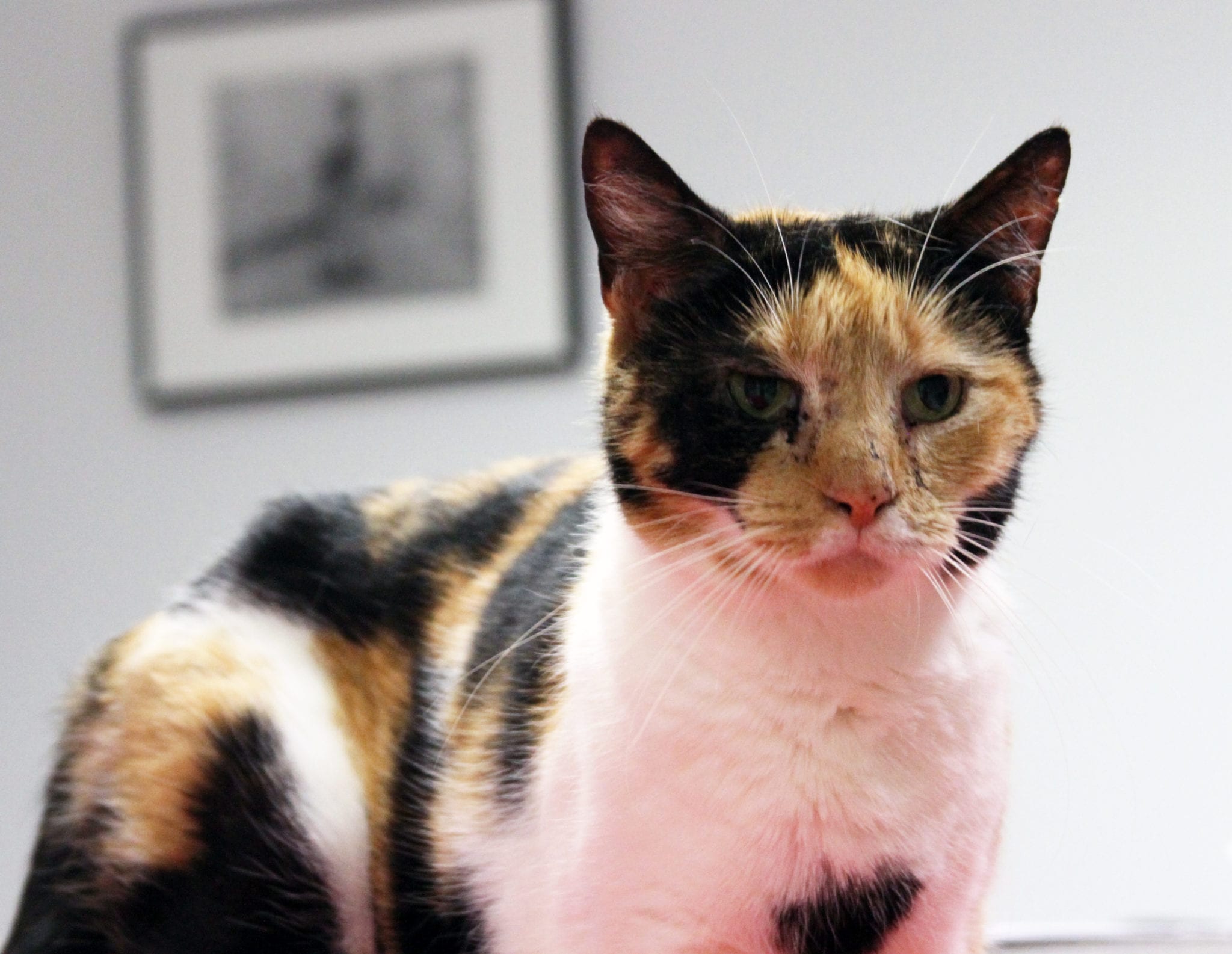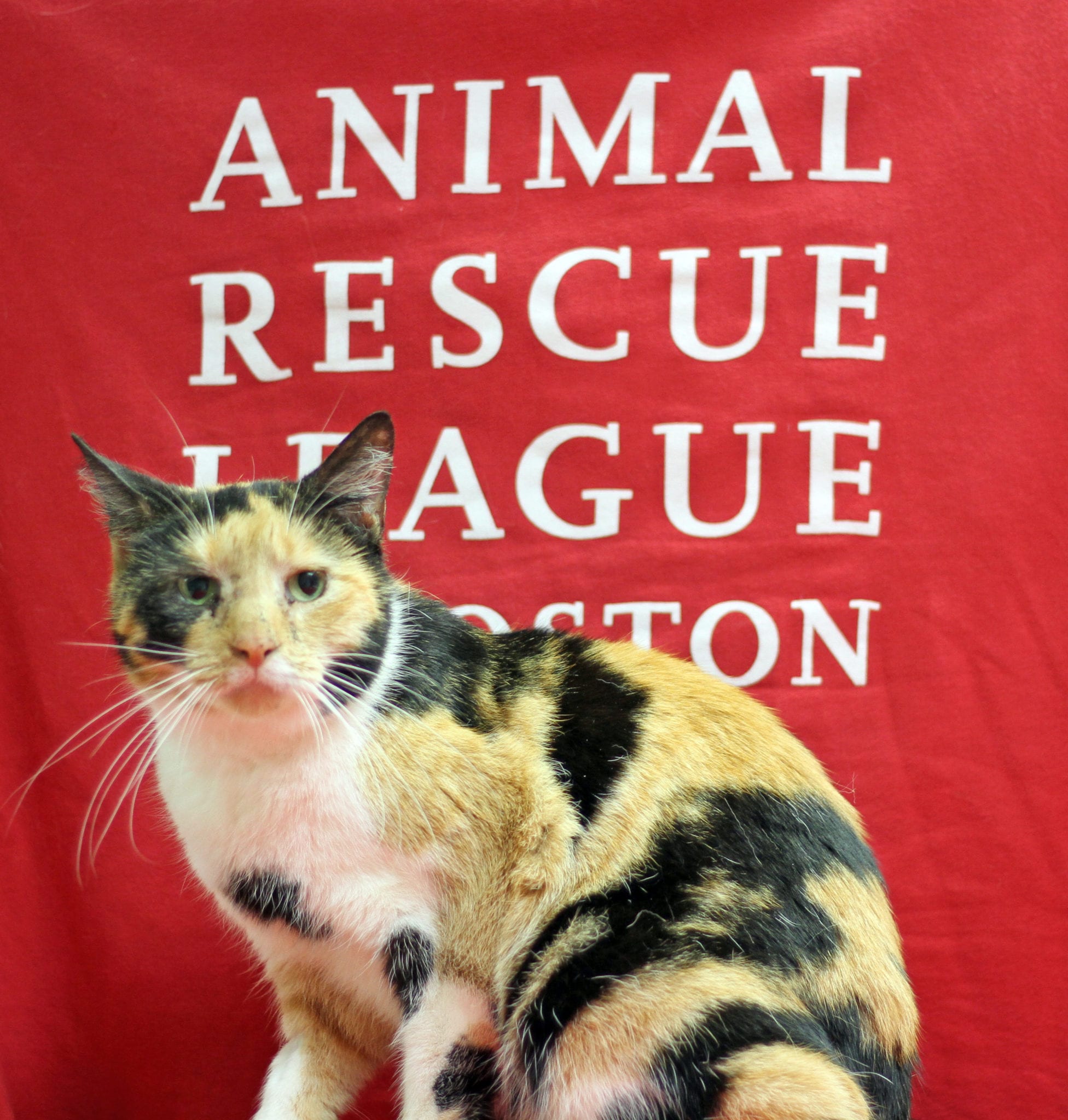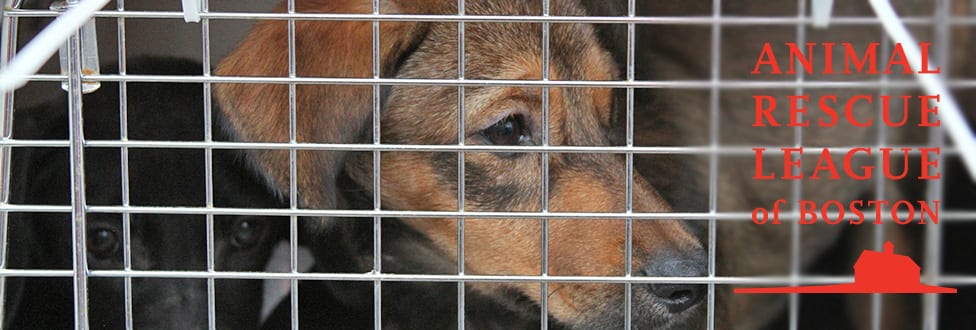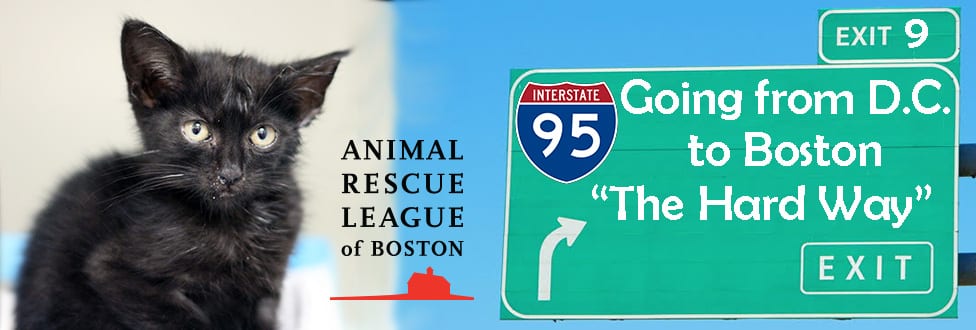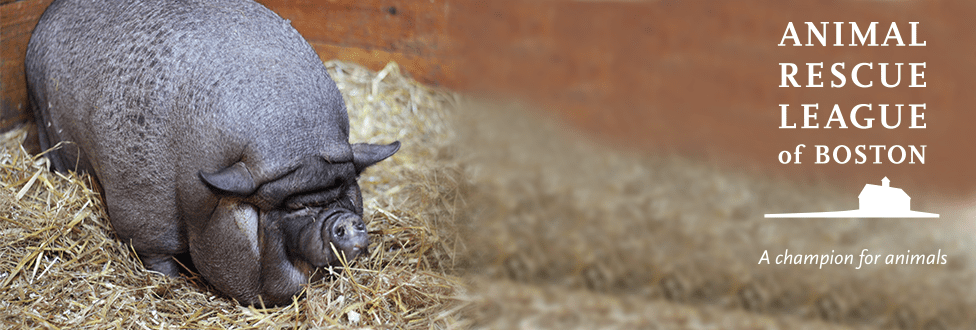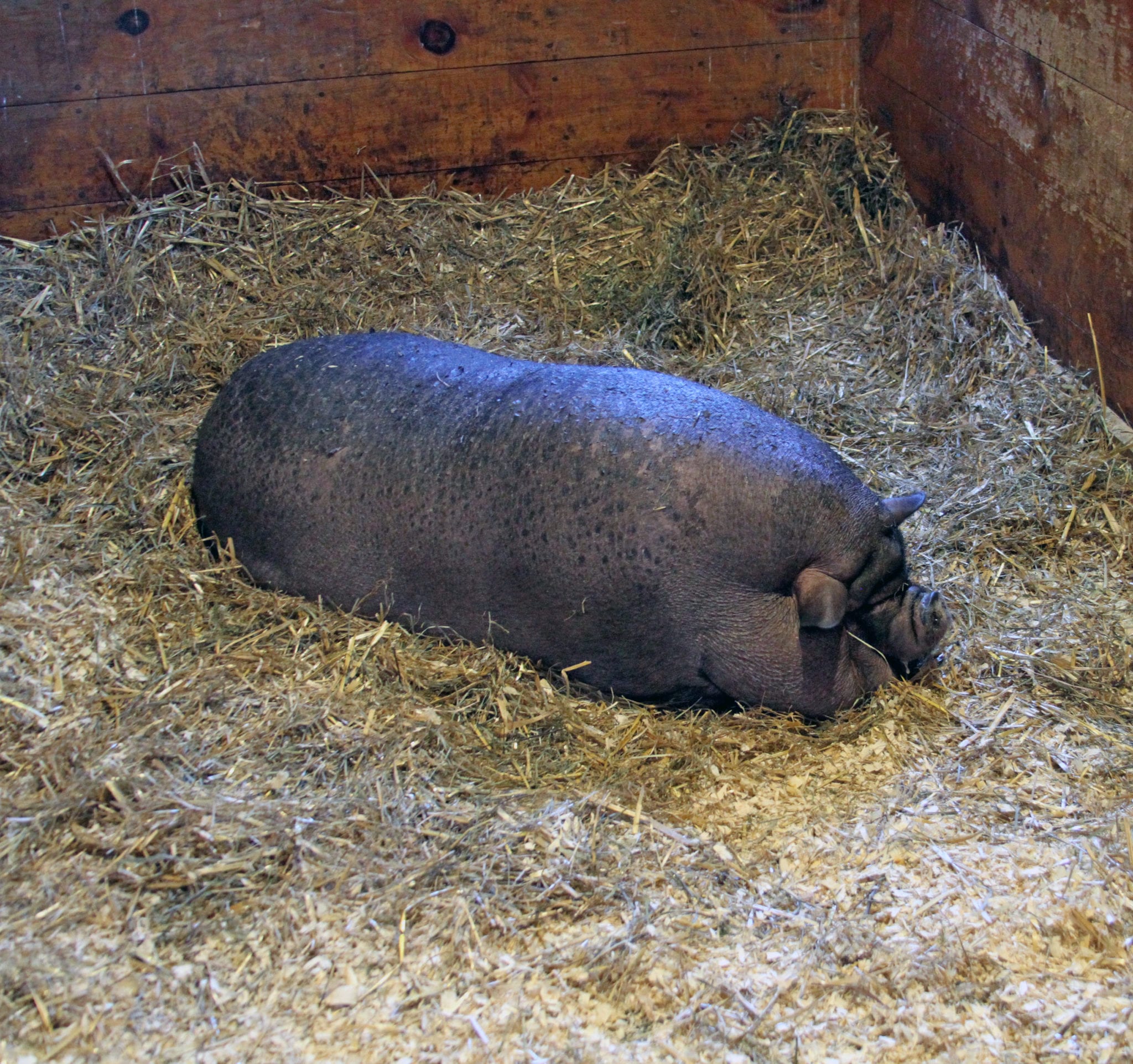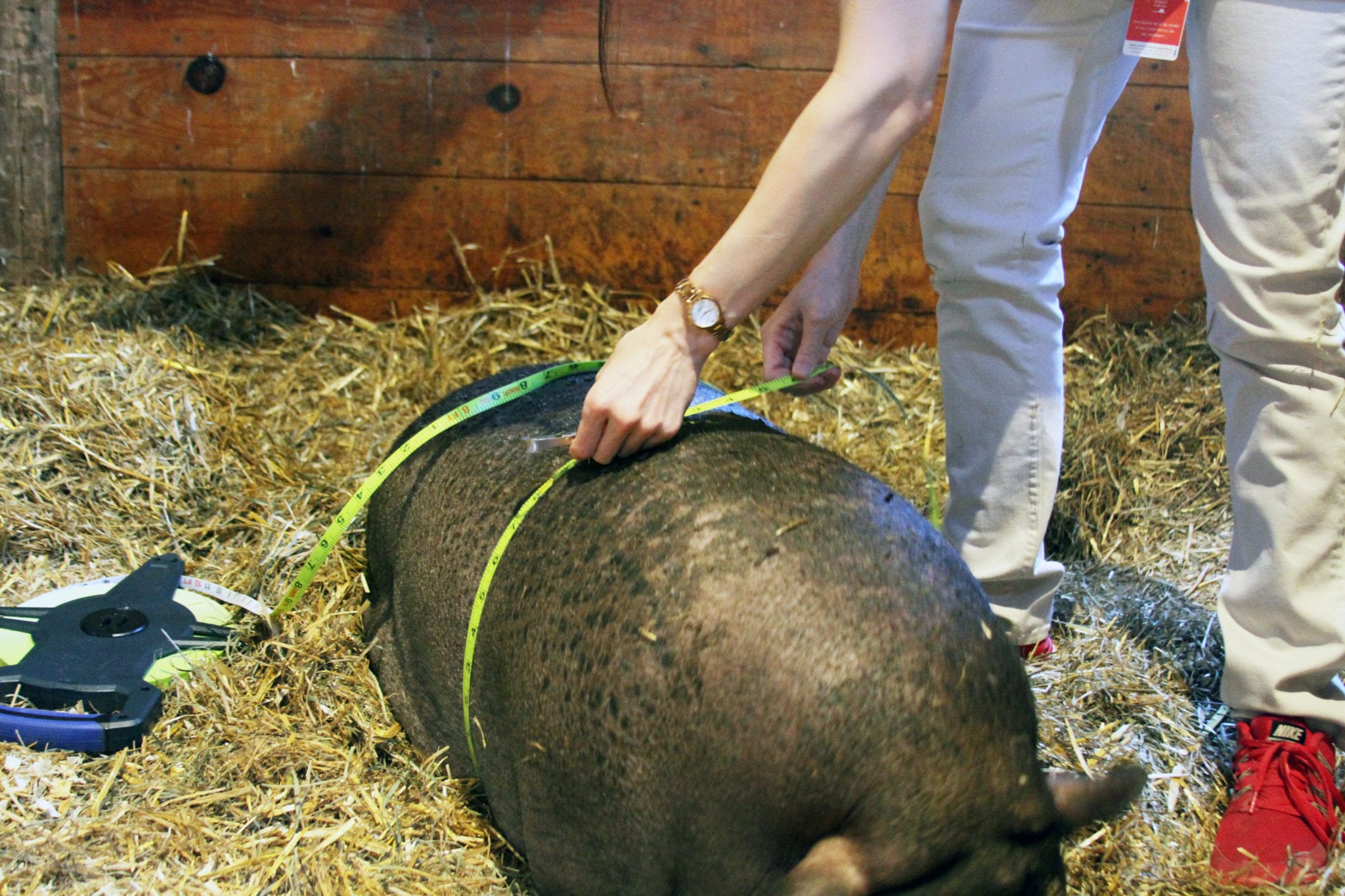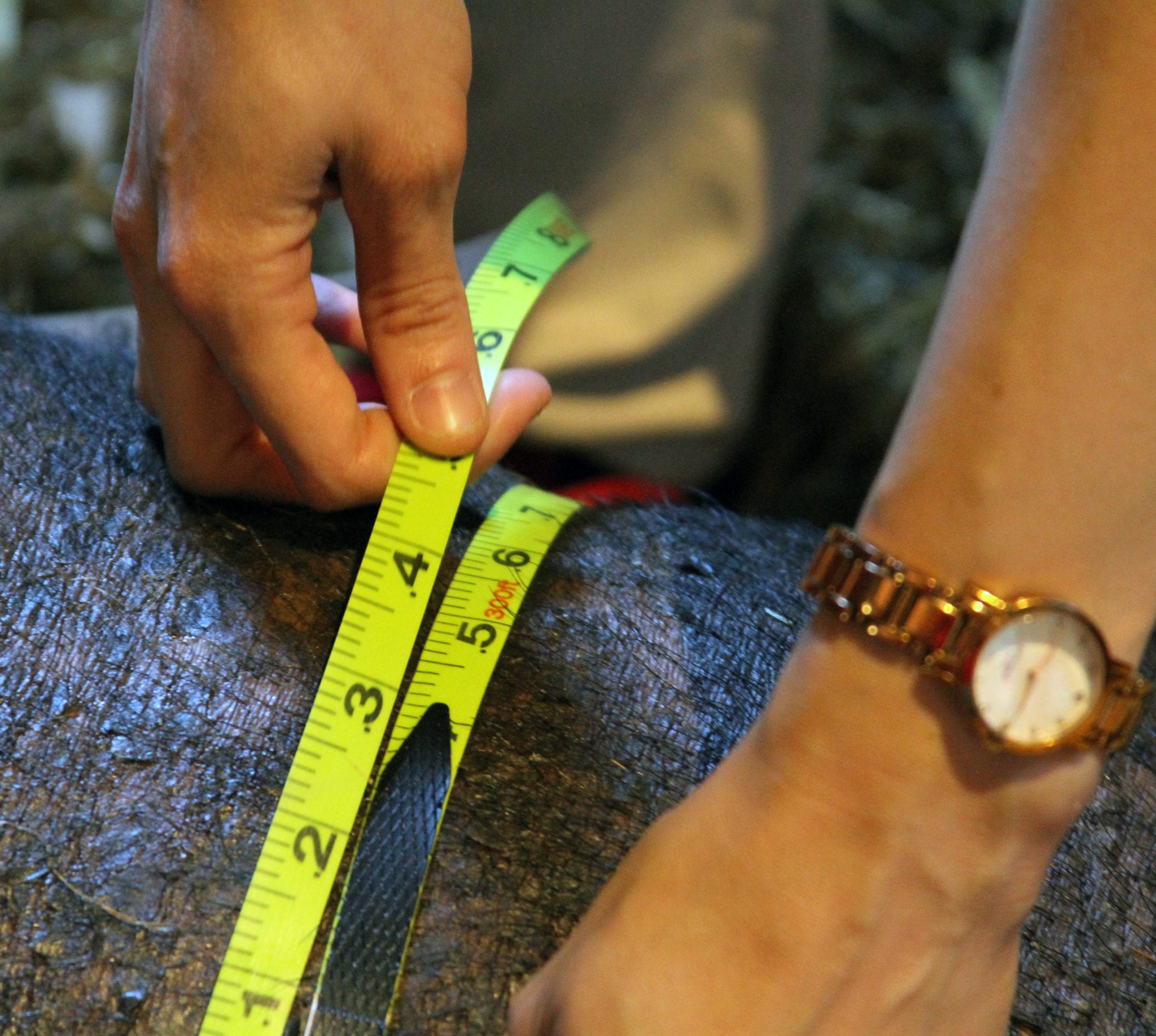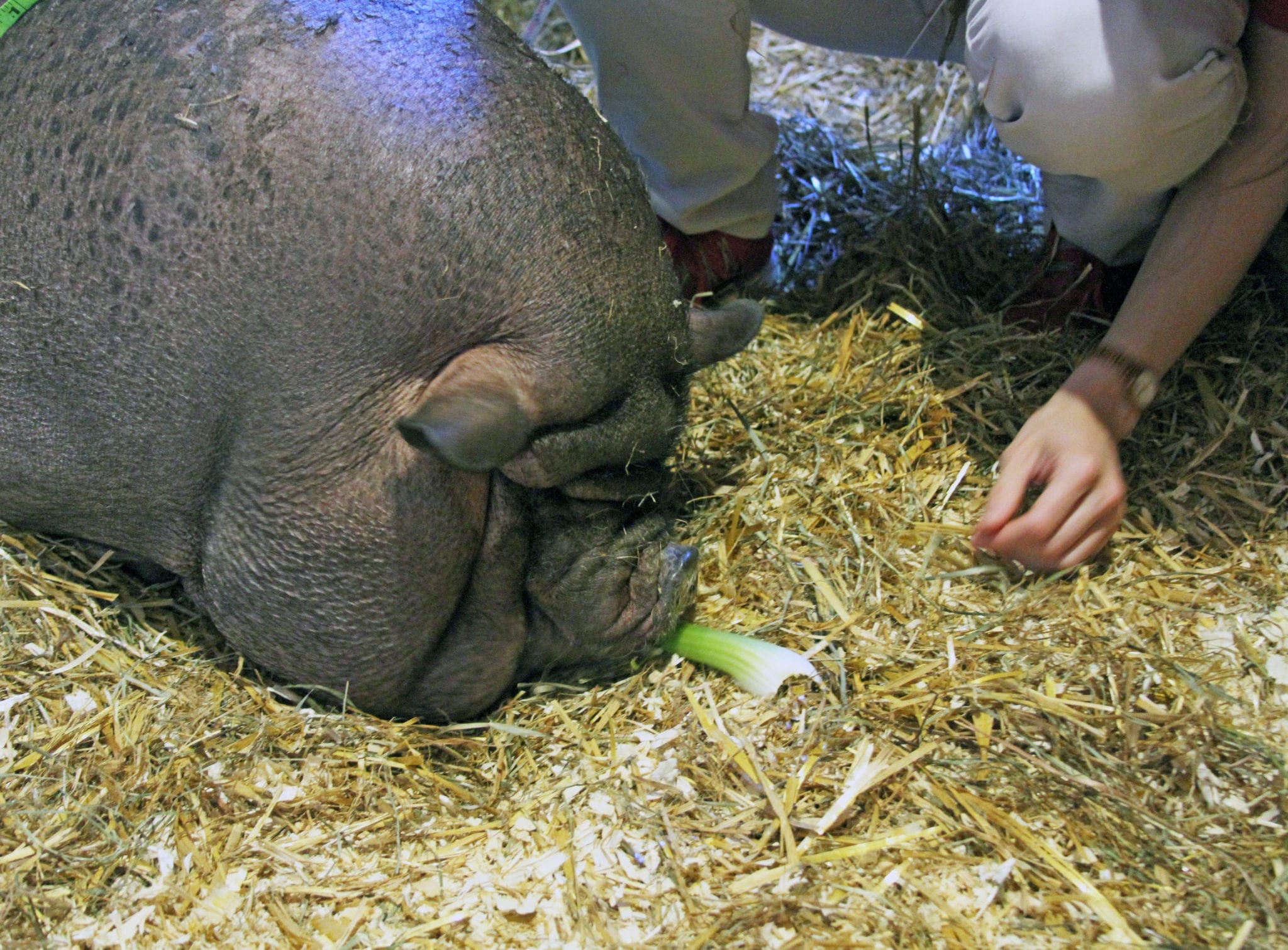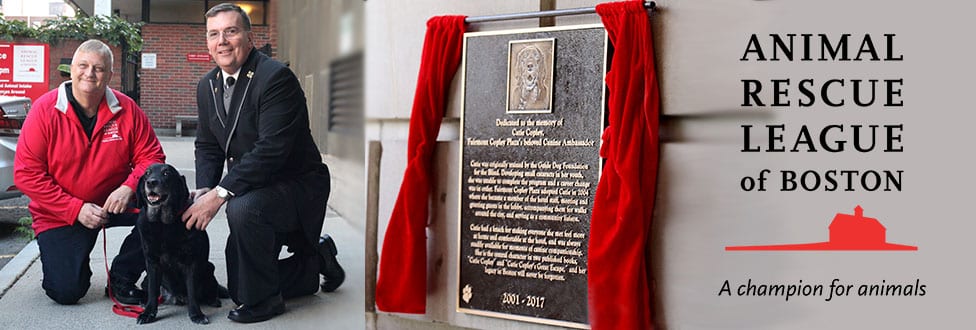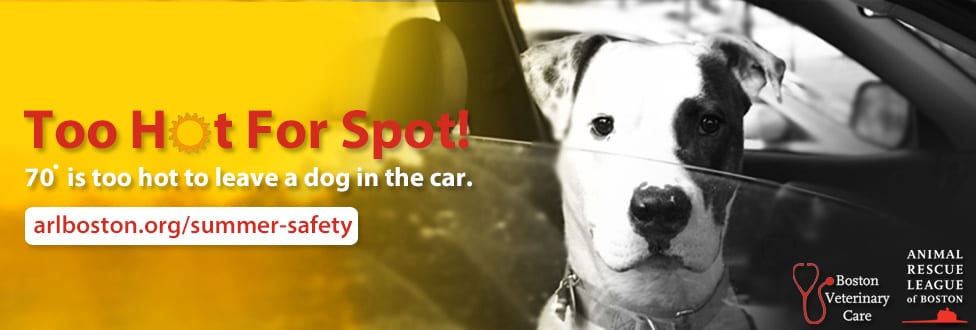Spay Waggin’ Making a Difference on the South Coast
New Bedford Cat Organization Utilizing ARL Community-Based Services
This week the Animal Rescue League of Boston’s (ARL) Spay Waggin’ made its usual monthly stop in New Bedford, setting up shop in front of Habitats for Cats. The nonprofit is celebrating its 20th anniversary, and has been utilizing ARL’s Spay Waggin’ for nearly a decade.
On this day upwards of 36 cats were spayed or neutered, some of which will be returned to feral colonies, while others will be put up for adoption. For the organization who specializes in trap-neuter-return or TNR, the Spay Waggin’, which offers low-cost spay and neuter services, has helped the organization tremendously in shrinking feral cat colonies and finding adoptable cats good homes.
“Without the Spay Waggin’ we couldn’t do what we do,” said Ginny McMahon-Higgins, a member of Habitat for Cats’ board. “Having ARL come to the site is a huge help, otherwise we’d have to transport our cats, and cost-wise it’s something we wouldn’t be able to do.”
“I find it very rewarding to be working with an animal welfare organization located in an area with a large population of community cats in need,” said Dr. Kate Gollon, ARL Shelter Veterinarian. “Community cats — both feral and stray — are the primary contributors of kitten intakes into shelters. Having ongoing, active TNR programs in neighborhoods with large populations of community cats is essential in reducing shelter populations and improve individual cat welfare. ARL’s Spay Waggin’ working with Habitat for Cats has allowed these efforts to continue.”
Along with utilizing the Spay Waggin’, Habitat for Cats has also been promoting Healthy Moms, Happy Litters, a new community-based program which provides complimentary assistance to local families and their pets to help prevent animal homelessness, suffering, and neglect.
“They (ARL) are out in the community, providing services that more people should be taking advantage of,” McMahon-Higgins said. “The more people who know these services exist, the less animals there are on the streets, and that’s the goal.”
The vision of ARL is that animals are healthy in the communities where they live. Having active programs like the Spay Waggin’ and Healthy Moms, Happy Litters, gets ARL out into the communities we serve, and are certainly generating results.
“New Bedford is a working class area, and because of financial constraints, we have historically seen a drastic number of homeless animals,” McMahon-Higgins said. “Community cats are still an issue, however with the help of the Animal Rescue League of Boston, we have made significant progress in this area.”
Here to Help
If getting your animal spayed or neutered is cost-prohibitive, ARL is here to help. The Spay Waggin’ provides low cost, high-quality spay/neuter services along the South Shore, South Coast, and Cape Cod. Services also include a brief veterinary exam, vaccinations, treatment for fleas, ear mites and intestinal parasites, and a nail trim. Click here to see a complete list of services, costs, scheduled stops, and to make an appointment.
